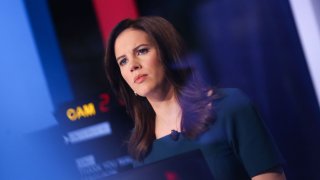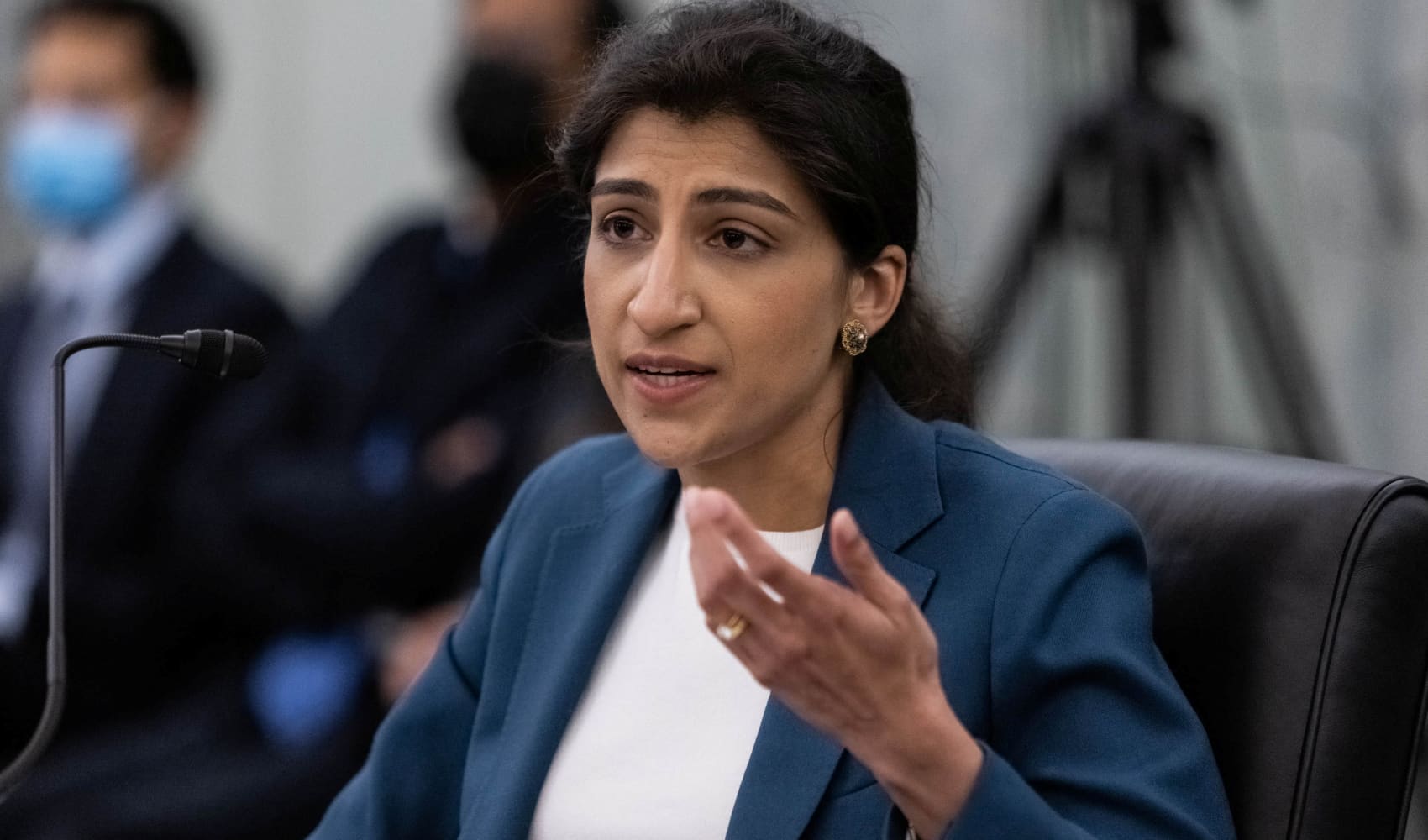
There has not been a lot of great news on the inflation front lately.
Oil prices? Don't look there. The national average for a gallon of gas hit $3.62 today, as oil tops $100 a barrel again--the highest pump price since the summer of 2014. Russia's invasion of Ukraine could easily push prices 20% to 30% higher from here, analysts warn. And it's not just oil: "Barring a breakthrough in peace negotiations, we believe this leaves commodity prices having to rally sharply as we see demand destruction as now the only significant remaining balancing mechanism," wrote Goldman's commodities team on Sunday.
(And even if we had a miraculous turn towards world peace, Goldman's Jeff Currie warned on our show the other day that oil prices typically move about 30% higher in the first six months of a Fed tightening cycle--which we are expected to start in two weeks. So either way, he says, you get higher oil and gasoline prices.)
And it's not just about oil. Or metals. Or other commodities. "The inflation picture has worsened this winter...and how much it will improve later this year is now in question," wrote Goldman's economists in a separate note Sunday. "While the inflation surge in 2021 was dominated by pandemic-driven [imbalances], inflationary pressures have broadened and intensified in recent months."
Get Connecticut local news, weather forecasts and entertainment stories to your inbox. Sign up for NBC Connecticut newsletters.
Specifically, Goldman is wary of "core services categories," like healthcare, that "could be the next part of the inflation basket to heat up" because labor shortages are driving wage gains that are making those services more expensive. Overall, they now expect the Fed's preferred inflation gauge, core PCE, to only drop to 3.7% by the end of the year, versus their 3.1% prior estimate (it was 5.2% in January).
Against this backdrop, President Biden has to deliver a State of the Union address tonight to a public whose top concern--prior to Russia's invasion of Ukraine--had moved from the pandemic to inflation and the high cost of living. The president is reportedly going to invoke his climate agenda, along with other policy proposals, as key way to "battle inflation and save the average American family $500 per year," according to reports based on this Rhodium research.
But not everyone even in his own party is convinced about that. "The left must face up to inflation because we must be realistic and ready for what's coming next," wrote the progressive economist James K. Galbraith in The Nation earlier this month. "Fading American global power, rising resource costs, the energy transition, and the climate crisis--as well as most of the investments and job policies we favor to respond to these changes--will put pressure on the price level. The 'inflation' to come is just a condensed version of this reality." (Emphasis mine.)
Money Report
Nor is Galbraith a fan of leaning on the Federal Reserve to keep inflation low, which he warns could harm the economy. How does he propose his party fight inflation in the years to come, then? He suggests five approaches: (1) Stop wasting resources on foreign wars. (2) 'Definancialize' the economy with a public banking system and a tax on 'speculative assets'--including land and intellectual property. (3) Medicare for All. (4) Rent control, and (5) Price controls.
The president tonight may tout the list of economists who think his climate bill and other policies will lower inflation, in other words, but Galbraith is offering what he thinks is a more honest vision of the future that will be required to achieve many key progressive policy goals.
And these inflationary pressures simply aren't going to go away "on their own." Just think about the collision of forces that's put them into motion: The pandemic. The supply-chain problems that the Ukraine crisis may now have extended. The biggest labor shortage, per Goldman, that we've had in the post-World War II period. The policy goals and approaches discussed above. And above all, the retreat of globalization. "As globalization contracts, the odds are higher secular U.S. inflation," the analyst Richard Bernstein warned investors last week.
Even as the pandemic has already reshaped the U.S. economy once this decade, the inflation fight--if it follows Galbraith's vision--could leave even deeper marks on society in the years to come.
See you at 1 p.m!
Kelly
Correction: The national average for a gallon of gas hit $3.62 today, the highest since the summer of 2014. The timeframe was misstated in an earlier version of this newsletter.






